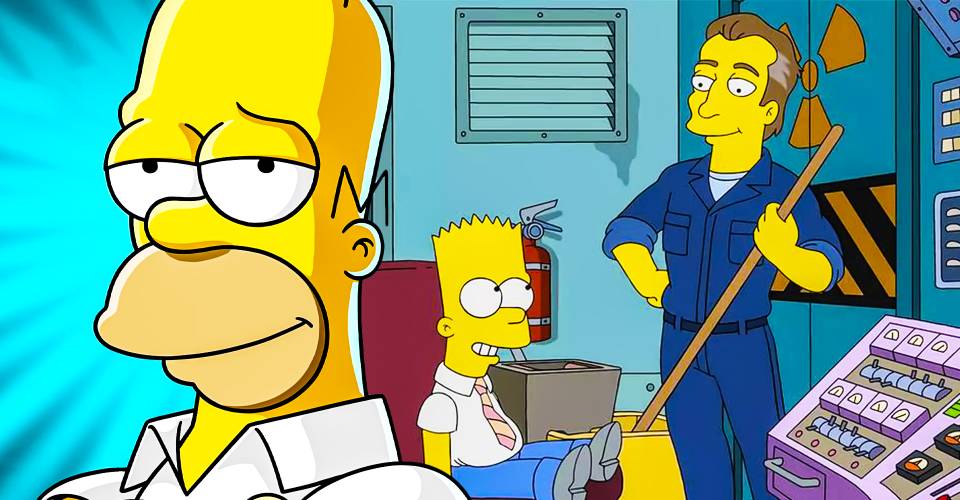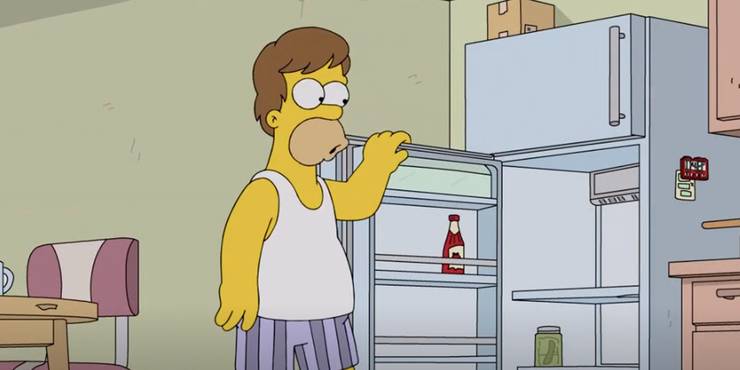The Simpsons Season 33 Finale Proved Its Retcons Make No Sense
The Simpsons retconning the show's canon caused a major plot hole in the season 33 finale, which relied on Homer's changing age being set in stone.
The season 33 finale of The Simpsons featured some of the show’s most incisive satire in a while, but the episode tacitly admitted that the constant retcons in the series make no sense and can undermine the effectiveness of its gags. By this stage, it has been long established that The Simpsons has “flexible continuity” that allows the show’s creators to rewrite its canon with each new episode. Plot holes like the question of whether Shauna Chalmers replaced Bart’s first crush or Laura Powers could still return are constantly subject to change since The Simpsons has no internal logic that drives the show’s stories.
While this approach is intended to make The Simpsons as freewheeling, anarchic, and comedically open-ended as possible, it also limits how satirically sharp the series can be. For example, in The Simpsons season 33, episode 22, “Poorhouse Rock,” Bart learns he will never have a comfortable job like his father due to the changing economic environment of America. However, this storyline only makes sense if viewers ignore numerous other episodes of The Simpsons.
In "Poorhouse Rock," a guest-starring Hugh Jackman explains to Bart, via song, that he will never have a job as stable as Homer’s nuclear power plant position due to the vanishing middle class in America. The Simpsons season 33 finale’s political satire works surprisingly well, with Jackman's character’s song and dance routine outlining the conditions that have led to Bart’s generation being left in an unenviable economic quandary. However, this entire story is only sensible if viewers assume that Homer was a teen in the '60s or '70s and joined the workforce in the '70s or '80s, an idea that falls apart when any of The Simpsons’ many new versions of its canon are taken into account. For example, Homer wouldn’t have this job security if he was a teen in the late '90s, which is the case in the Simpsons season 33 premiere episode, “The Star of the Backstage.”
That is only one of the recent retcons that place Homer outside of the famously fortunate baby boomer generation who benefitted from job security before America’s income inequality increased. Another controversial Simpsons retcon can be found in season 19, episode 11, “That 90s Show,” which depicts Homer as a teen in the late '90s, meaning he would not have entered the workforce until the early 2000s. In this version of the show's canon, Homer’s job security would have been non-existent thanks to the 2008 financial crash, the subprime mortgage crisis, and the subsequent recession.
While these problems aren’t an issue in more light-hearted episodes of The Simpsons, they become a major issue when the show attempts anything resembling timely political satire. For such jabs to land, the Simpsons need to exist in a world that has some relationship with reality. Thus, Homer’s age constantly changing weakens the show’s insight into generational wealth gaps in recent American history, much like The Simpsons parody of Angela Merkel was defanged when the episode aired long after the former German chancellor retired. While flexible canon may work for the show’s sillier stories, in the case of the season 33 finale of The Simpsons, the storytelling style ultimately undermined the satirical edge of the episode.






Post a Comment